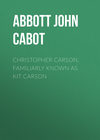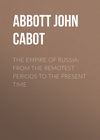Buch lesen: «Maria Antoinette», Seite 3
Versailles
Magnificence of the palace
Much of the time of Louis and his bride was passed at the palaces of Versailles. This renowned residence of the royal family of France is situated about ten miles from Paris, in the midst of an extensive plain. Until the middle of the seventeenth century it was only a small village. At this time Louis XIV. determined to erect upon this solitary spot a residence worthy of the grandeur of his throne. Seven years were employed in completing the palace, garden, and park. No expense was spared by him or his successors to render it the most magnificent residence in Europe. No regal mansion or city can boast a greater display of reservoirs, fountains, gardens, groves, cascades, and the various other embellishments and appliances of pleasure. The situation of the principal palace is on a gentle elevation. Its front and wings are of polished stone, ornamented with statues, and a colonnade of the Doric order is in the center. The grand hall is about two hundred and twenty feet in length, with costly decorations in marble, paintings, and gilding. The other apartments are of corresponding size and elegance. This beautiful structure is approached by three magnificent avenues, shaded by stately trees, leading respectively from Paris, St. Cloud, and Versailles.
Gallery of paintings, statuary, etc
Gorgeous saloons
Splendid gardens
Other palaces
This gorgeous mansion of the monarchs of France presents a front eight hundred feet in length, and has connected with it fifteen projecting buildings of spacious dimensions, decorated with Ionic columns and pilasters, constituting almost a city in itself. One great gallery, adorned with statuary, paintings, and architectural embellishments, is two hundred and thirty-two feet long, thirty broad, and thirty-seven high, and lighted by seventeen large windows. Many gorgeous saloons, furnished with the most costly splendor, a banqueting-room of the most spacious dimensions, where luxurious kings have long rioted in midnight revels, an opera house and a chapel, whose beautifully fluted pillars support a dome which is the admiration of all who look up upon its graceful beauty, combine to lend attractions to these royal abodes such as few other earthly mansions can rival, and none, perhaps, eclipse. The gardens, in the midst of which this voluptuous residence reposes, are equal in splendor to the palace they are intended to adorn. Here the kings of France had rioted in boundless profusion, and every conceivable appliance of pleasure was collected in these abodes, from which all thoughts of retribution were studiously excluded. The expense incurred in rearing and embellishing this princely structure has amounted to uncounted millions. But we must not forget that these millions were wrested from the toiling multitude, who dwelt in mud hovels, and ate the coarsest food, that their proud and licentious rulers might be "clothed in purple and fine linen, and fare sumptuously every day." Such was the home to which the beautiful Maria Antoinette, the bride of fifteen, was introduced; and in the midst of temptations to which such voluptuousness exposed her, she entered upon her dark and gloomy career. This, however, was but one of her abodes. It was but one even of her country seats. At Versailles there were other palaces, in the construction and the embellishment of which the revenues of the kingdom had been lavished and in whose luxurious chambers all the laws of God had been openly set at defiance by those earthly kings who ever forgot that there was one enthroned above them as the King of kings.
The Great and the Little Trianon
Gardens, cascades, etc
Nature of Maria's mind
Walks in the garden
Maria's want of education
She attempts to supply it
Within the circuit of the park are two smaller palaces, called the Great and the Little Trianon. These may be called royal residences in miniature; seats to which the king and queen retired when desirous of laying aside their rank and state. The Little Trianon was a beautiful palace, about eighty feet square. It was built by Louis XV. for Madame du Barri. Its architectural style was that of a Roman pavilion, and it was surrounded with gardens ornamented in the highest attainments of French and English art, diversified with temples, cottages, and cascades. This was the favorite retreat of Maria Antoinette. This she regarded as peculiarly her home. Here she was for a time comparatively happy. Though living in the midst of all the jealousies, and intrigues, and bickerings of a court, and though in heart deeply pained by the strange indifference and neglect which her husband manifested toward her person, the buoyancy of her youthful spirit enabled her to triumph, in a manner, over those influences of depression, and she was the life and the ornament of every gay scene. As her mind had been but little cultivated, she had but few resources within herself to dispel that ennui which is the great foe of the votaries of fashion; and, unconscious of any other sources of enjoyment, she plunged with all the zest of novelty into an incessant round of balls, operas, theaters, and masquerades. Her mind, by nature, was one of the noblest texture, and by suitable culture might have exulted in the appreciation of all that is beautiful and sublime in the world of nature and in the realms of thought. She loved the retirement of the Little Trianon. She loved, in the comparative quietude of that miniature palace, of that royal home, to shake off all the restraints of regal state, and to live with a few choice friends in the freedom of a private lady. Unattended she rambled among the flowers of the garden; and in the bright moonlight, leaning upon the arm of a female friend, she forgot, as she gazed upon the moon, and the stars, and all the somber glories of the night, that she was a queen, and rejoiced in those emotions common to every ennobled spirit. Here she often lingered in the midst of congenial joys, till the murmurs of courtiers drew her away to the more exciting, but far less satisfying scenes of fashionable pleasure. She often lamented bitterly, and even with tears, her want of intellectual cultivation, and so painfully felt her inferiority when in the society of ladies of intelligence and highly-disciplined minds, that she sought to surround herself with those whose tastes were no more intellectual than her own. "What a resource," she once exclaimed, "amid the casualties of life, is a well-cultivated mind! One can then be one's own companion, and find society in one's own thoughts." Here, in her Little Trianon, she made several unavailing attempts to retrieve, by study, those hours of childhood which had been lost. But it was too late. For a few days, with great zeal and self-denial, she would persevere in secluding herself in the library with her books. But it was in vain for the Queen of France to strive again to become a school-girl. Those days had passed forever. The innumerable interruptions of her station frustrated all her endeavors, and she was compelled to abandon the attempt in sorrow and despair. We know not upon how trivial events the great destinies of the world are suspended; and had the Queen of France possessed a highly-disciplined mind – had she been familiar with the teachings of history, and been capable of inspiring respect by her intellectual attainments, it is far from impossible that she might have lived and died in peace. But almost the only hours of enjoyment which shone upon Maria while Queen of France, was when she forgot that she was a queen, and, like a village maiden, loitered through the gardens and the groves in the midst of which the Little Trianon was embowered.
Maria's enemies
Their malignant slanders
The enemies of Maria had sedulously endeavored to spread the report through France that she was still in heart an Austrian; that she loved only the country she had left, and that she had no affection for the country over which she was to reign as queen. They falsely and malignantly spread the report that she had changed the name of Little Trianon into Little Vienna. The rumor spread rapidly. It excited great displeasure. The indignant denials of Maria were disregarded. Thus the number of her enemies was steadily increasing.
Visit of Maximilian
A quarrel about forms
Unexpected tenderness of Louis
Another unfortunate occurrence took place, which rendered her still more unpopular at court. Her brother Maximilian, a vain and foolish young man, made a visit to his sister at the court of Versailles, not traveling in his own proper rank, but under an assumed name. It was quite common with princes of the blood-royal, for various reasons, thus to travel. The young Austrian prince insisted that the first visit was due to him from the princes of the royal family in France. They, on the contrary insisted that, as he was not traveling in his own name, and in the recognition of his own proper rank, it was their duty to regard him as of the character he had assumed, and as this was of a rank inferior to that of a royal prince, it could not be their duty to pay the first visit. The dispute ran high. Maria, seconded by the Abbé Vermond, took the part of her brother. This greatly offended many of the highest nobility of the realm. It became a family quarrel of great bitterness. A thousand tongues were busy whispering malicious accusations against Maria. Ribald songs to sully her name were hawked through the streets. Care began to press heavily upon the brow of the dauphiness, and sorrow to spread its pallor over her cheek. Her high spirit could not brook the humility of endeavoring the refutation of the calumnies urged against her. Still, she was too sensitive not to feel them often with the intensest anguish. Her husband was comparatively a stranger to her. He bowed to her with much civility when they met, but never addressed her with a word or gesture of tenderness, or manifested the least desire to see her alone. One evening, when walking in the garden of Little Trianon, he astonished the courtiers, and almost overpowered Maria with delightful emotions, by offering her his arm. This was the most affectionate act with which he had ever approached her. Such were the bridal days of Maria Antoinette.
Chapter III.
Maria Antoinette Enthroned
1774-1775
Louis XV. seized with small-pox
In the year 1774, about four years after the marriage of Maria Antoinette and Louis, the dissolute old king, Louis XV., in his palace at Versailles, surrounded by his courtiers and his lawless pleasures, was taken sick. The disease soon developed itself as the small-pox in its most virulent form. The physicians, knowing the terror with which the conscience-smitten monarch regarded death, feared to inform him of the nature of his disease.
"What are these pimples," inquired the king, "which are breaking out all over my body?"
"They are little pustules," was the reply, "which require three days in forming, three in suppurating, and three in drying."
Flight of the courtiers
The dreadful malady which had seized upon the king was soon, however, known throughout the court, and all fled from the infection. The miserable monarch, hated by his subjects, despised by his courtiers, and writhing under the scorpion lash of his own conscience, was left to groan and die alone. It was a horrible termination of a most loathsome life.
The Marchioness du Pompadour
Her dissolute character
The vices of Louis XV. sowed the seeds of the French Revolution. Two dissolute women, notorious on the page of history, each, in their turn, governed him and France. The Marchioness du Pompadour was his first favorite. Ambitious, shrewd, unprincipled, and avaricious, she held the weak-minded king entirely under her control, and spread throughout the court an influence so contaminating that the whole empire was infected with the demoralization. Upon this woman he squandered almost the revenues of the kingdom. The celebrated Parc au Cerf, the scene of almost unparalleled voluptuousness, was reared for her at an expense of twenty millions of dollars. After her charms had faded, she still contrived to retain her political influence over the pliant monarch, until she died, at the age of forty-four, universally detested.
Debauchery of Louis XV
He squanders the public revenue
Madame du Barri, of whom we have before spoken, succeeded the Marchioness du Pompadour in this post of infamy. The king lavished upon her, in the short space of eight years, more than ten millions of dollars. For her he erected the Little Trianon, with its gardens, parks, and fountains, a temple of pleasure dedicated to lawless passion. The king had totally neglected the interests of his majestic empire, consecrating every moment of time to his own sensual gratification. The revenues of the realm were squandered in the profligacy and carousings of his court. The people were regarded merely as servants who were to toil to minister to the voluptuous indulgence of their masters. They lived in penury, that kings, and queens, and courtiers might revel in all imaginable magnificence and luxury. This was the ultimate cause of that terrible outbreak which eventually crushed Maria Antoinette beneath the ruins of the French monarchy. Louis XV., in his shameless debaucheries, not only expended every dollar upon which he could lay his hands, but at his death left the kingdom involved in a debt of four hundred millions of dollars, which was to be paid from the scanty earnings of peasants and artisans whose condition was hardly superior to that of the enslaved laborers on the plantations of Carolina and Louisiana. But I am wandering from my story.
Remorse of the king
The lamp at the window
In a chamber of the palace of the Little Trianon we left the king dying of the confluent small-pox. The courtiers have fled in consternation. It is the hour of midnight, the 10th of May, 1774. The monarch of France is alone as he struggles with the king of terrors. No attendants linger around him. Two old women, in an adjoining apartment, occasionally look in upon the mass of corruption upon the royal couch, which had already lost every semblance of humanity. The eye is blinded. The swollen tongue can not articulate. What thought of remorse or terror may be rioting through the soul of the dying king, no one knows, and – no one cares. A lamp flickers at the window, which is a signal to those at a safe distance that the king still lives. Its feeble flame is to be extinguished the moment life departs. The courtiers, from the windows of the distant palace, watch with the most intense solicitude the glimmering of that midnight taper. Should the king recover, they dreaded the reproach of having deserted him in the hour of his extremity. They hope, so earnestly, that he may not live. Should he die, they are anxious to be the first in their congratulations to the new king and queen. The hours of the night linger wearily away as expectant courtiers gaze impatiently through the gloom upon that dim torch. The horses are harnessed in the carriages, and waiting at the doors, that the courtiers, without the loss of a moment, may rush to do homage to the new sovereign.
Death of Louis XV
Indecent haste of the courtiers
The clock was tolling the hour of twelve at night when the lamp was extinguished. The miserable king had ceased to breathe. The ensuing scene no pen can delineate or pencil paint. The courtiers, totally forgetful of French etiquette, rushed down the stairs, crowded into their carriages, and the silence of night was disturbed by the clattering of the horses' hoofs, as they were urged, at their utmost speed, to the apartments of the dauphin.
Emotions of the young king and queen
There Maria Antoinette and Louis, with a few family friends, were awaiting the anticipated intelligence of the death of their grandfather the king. Though neither of them could have cherished any feelings of affection for the dissolute old monarch, it was an hour to awaken in the soul emotions of the deepest melancholy. Death had approached, in the most frightful form, the spot on earth where, probably, of all others, he was most dreaded. Suddenly a noise was heard, as of thunder, in the ante-chamber of the dauphin. It was the rush of the courtiers from the dead monarch to bow at the shrine of the new dispensors of wealth and power. This extraordinary tumult, in the silence of midnight, conveyed to Maria and Louis the first intelligence that the crown of France had fallen upon their brows. Louis was then twenty-four years of age, modest, timid, and conscientious. Maria was twenty, mirthful, thoughtless, and shrinking from responsibility. They were both overwhelmed, and, falling upon their knees, exclaimed, with gushing tears, "O God! guide us, protect us; we are too young to govern."
Homage of the courtiers
The Countess de Noailles was the first to salute Maria Antoinette as Queen of France. She entered the private saloon in which they were sitting, and requested their majesties to enter the grand audience hall, where the princes and all the great officers of state were anxious to do homage to their new sovereigns. Maria Antoinette, leaning upon her husband's arm, and with her handkerchief held to her eyes, which were bathed in tears, received these first expressions of loyalty. There was, however, not an individual found to mourn for the departed king. No one was willing to endanger his safety by any act of respect toward his remains. The laws of France required that the chief surgeon should open the body of the departed monarch and embalm it, and that the first gentleman of the bed-chamber should hold the head while the operation was performed.
"You will see the body properly embalmed?" said the gentleman of the bed-chamber to the surgeon.
"Certainly," was the reply; "and you will hold the head?"
Burial of Louis XV
Each bowed politely to the other, without the exchange of another word. The body, unopened and unembalmed, was placed by a few under servants in a coffin, which was filled with the spirits of wine, and hurried, without an attendant mourner, to the tomb. Such was the earthly end of Louis XV. In an hour he was forgotten, or remembered but to be despised.
The king and queen leave Versailles
At four o'clock of that same morning, the young king and queen, with the whole court in retinue, left Versailles, in their carriages, for Choisy. The morning was cold, dark, and cheerless. The awful death of the king, and the succeeding excitements, had impressed the company with gloom. Maria Antoinette rode in the carriage with her husband, and with one or two other members of the royal family. For some time they rode in silence, Maria, a child of impulse, weeping profusely from the emotions which moved her soul. But, ere long, the morning dawned. The sun rose bright and clear over the hills of France, and the whole beautiful landscape glittered in the light of the most lovely of spring mornings. Insensibly the gloom of the mind departed with the gloom of night. Conversation commenced. The mournful past was forgotten in anticipation of the bright future. Some jocular remark of the young king's sister elicited a general burst of laughter, when, by common consent, they wiped away their tears, banished all funereal looks, and, a merry party, rode merrily along, over hill and dale, to a crown and a throne. Little did they dream that these sunny hours and this flowery path but conducted them to a dungeon and the guillotine.
The coronation
Enthusiasm of the people
Maria's grief
The king's estrangement
The coronation soon took place at Rheims, with the greatest display of festive magnificence. The novelty of a new reign, with a youthful king and queen, elated the versatile French, and loud and enthusiastic were the acclamations with which Louis and Maria Antoinette were greeted whenever they appeared. They were both, for a time, very popular with the nation at large, though there was in the court a party hostile to the queen, who took advantage of every act of indiscretion to traduce her character and to expose her to ignominy. In these efforts they succeeded so effectually as to overwhelm themselves in the same ruin which they had brought upon their victim. A deep-seated but secret grief still preyed upon the heart of Maria. Though four years since her marriage had now passed away, she was still comparatively a stranger to her husband. He treated her with respect, with politeness, but with cold reserve, never approaching her as his wife. The queen, possessing naturally a very affectionate disposition, was extremely fond of children. Despairing of ever becoming a mother herself, she thought of adopting some pleasant child to be her playmate and friend. One day, as she was riding in her carriage, a beautiful little peasant boy, about five years of age, with large blue eyes and flaxen hair, got under the feet of the horses, though he was extricated without having received any injury. As the grandmother rushed from the cottage door to take the child, the queen, standing up in her carriage, extended her arms to the old woman, and said,
"The child is mine. God has given it to me to rear and to cherish. Is his mother alive?"
"No, madame!" was the reply of the old woman. "My daughter died last winter, and left five small children upon my hands."
"I will take this one," said the queen, "and will also provide for all the rest. Will you consent?"
"Indeed, madame," exclaimed the cottager, "they are too fortunate. But I fear Jemmie will not stay with you. He is very wayward."
The little peasant boy
Becomes a monster of ingratitude
The postillion handed Jemmie to the queen in the carriage, and she, taking him upon her knee, ordered the coachman to drive immediately to the palace. The ride, however, was any thing but a pleasant one, for the ungoverned boy screamed and kicked with the utmost violence during the whole of the way. The queen was quite elated with her treasure; for the boy was extremely beautiful, and he was soon seen frolicking around her in a white frock trimmed with lace, a rose-colored sash, with silver fringe, and a hat decorated with feathers. I may here mention that the petted favorite grew up into a monster of ingratitude, and became one of the most sanguinary actors in the scenes of terror which subsequently ensued.
The queen's traducers
One would think that the enemies of Maria Antoinette could hardly take advantage of this circumstance to her injury; but they atrociously affirmed that this child was her own unacknowledged offspring, whose ignominious birth she had concealed. They represented the whole adventure but a piece of trickery on her part, to obtain, without suspicion, possession of her own child. Such accusations were borne upon the wings of every wind throughout Europe, and the deeply-injured queen could only submit in silence.
The Heron's Plume
Vile slanders
Profligate character of De Lauzun
Execution of De Lauzun
Another little incident, equally trivial, was magnified into the grossest of crimes. The Duke de Lauzun appeared one evening at an entertainment with a very magnificent plume of white heron's feathers. The queen casually expressed her admiration of its beauty. A lady immediately reported to the duke the remarks of the queen, and assured him that it would be a great gratification to her majesty to receive a present of the plume. He, the next morning, sent the plume to the queen. She was quite embarrassed, being unwilling to accept the plume, and yet fearing to wound the feelings of the duke by refusing the present. She, on the whole, however, concluded to retain it, and wore it once, that she might not seem to scorn the present, and then laid it aside. It is difficult to conceive how the queen could have conducted more discreetly in the affair. Such was the story of "The Heron's Plume." It was, however, maliciously reported through Paris that the queen was indecently receiving presents from gentlemen as her lovers. "The Heron's Plume" figured conspicuously in many a satire in prose and verse. These shafts, thrown from a thousand unseen hands, pierced Maria Antoinette to the heart. This same Duke de Lauzun, a man of noted profligacy, subsequently became one of the most unrelenting foes of the queen. He followed La Fayette to America, and then returned to Paris, to plunge, with the most reckless gayety, into the whirlpool of human passions boiling and whirling there. In the conflict of parties he became a victim. Condemned to death, he was imprisoned in the Conciergerie. Imbruted by atheism, he entered his cell with a merry song and a joke. He furnished a sumptuous repast for the prisoners at the hour appointed for his execution, and invited the jailers for his guests. When the executioners arrived, he smilingly accosted them. "Gentlemen, I am very happy to see you; just allow me to finish these nice oysters." Then, very politely taking a decanter of wine, he said, "Your duties will be quite arduous to-day, gentlemen; allow me the pleasure of taking a glass of wine with you." Thus merrily he ascended the cart, and beguiled the ride from the prison to the guillotine with the most careless pleasantries. Gayly tripping up the steps, he placed himself in the fatal instrument, and a smile was upon his lips, and mirthful words were falling upon the ears of the executioners, when the slide fell, and he was silent in death. That soul must indeed be ignoble which can thus enter the dread unseen of futurity.
A life of pleasure
Maria's imprudence
There is no end to these acts of injustice inflicted upon the queen. The influences which had ever surrounded her had made her very fond of dress and gayety. She was devoted to a life of pleasure, and was hardly conscious that there was any thing else to live for. In fêtes, balls, theaters, operas, and masquerades, she passed night after night. Such was the only occupation of her life. The king, on the contrary, had no taste for any of these amusements. Uncompanionable and retiring, he lived with his books, and in his workshop making trinkets for children. Always retiring to rest at the early hour of eleven o'clock precisely, he left the queen to pursue her pleasures until the dawn of the morning, unattended by him. It was very imprudent in Maria Antoinette thus to expose herself to the whispers of calumny. She was young, inexperienced, and had no judicious advisers.
Night adventure in a hackney-coach
One evening, she had been out in her carriage, and was returning at rather a late hour, the lady of the palace being with her, when her carriage broke down at her entrance into Paris. The queen and the duchess were both masked and, stepping into an adjoining shop, as they were unknown, the queen ordered one of the footmen to call a common hackney-coach, and they, both entering, drove to the opera-house, with very much the same sense of the ludicrous in being found in so plebeian a vehicle, as a New York lady would feel on passing through Broadway in a hand-cart or on a wheel-barrow. The fun-loving queen was so entertained with the whimsical adventure, that she could not refrain from exclaiming, as soon as she entered the opera-house, to the intimate friends she met there, "Only think! I came to the opera in a hackney-coach! Was it not droll? was it not droll?" The news of the indiscretion spread. All Paris was full of the adventure. Rumor, with her thousand tongues, added innumerable embellishments. Neither the delicacy nor the dignity of the queen would allow her seriously to attempt the refutation of the calumny that, neglected by her husband, she had been out in disguise to meet a nobleman renowned for his gallantries.
The gardens of Marly
Their unrivaled splendor
Nothing can be more irksome than the frivolities of fashionable life. To spend night after night, of months and years, in an incessant round of the same trivial gayeties, so exhausts all the susceptibilities of enjoyment that life itself becomes a burden. Louis XIV. had created for himself a sort of elysium of voluptuousness in the celebrated gardens of Marly. Spread out upon the gentle declivity of an extended hill were grounds embellished in the highest style of art, and intended to rival the garden of Eden itself in every conceivable attraction. Pavilions of gorgeous architecture crowned the summit of the hill. Flowers, groves, enchanting walks, and statues of most voluptuous beauty, fountains, lakes, cascades foaming over channels of whitest marble – all the attractions of nature and art were combined to realize the most fanciful dreams of splendor and luxury. Pleasure was the only god here adored; but, like all false gods, he but rewarded his votaries with satiety and disgust.
Maria's visits to Marly
Heartless gayety
The queen, with her brilliant retinue, made a monthly visit to these palaces and pleasure-grounds, and with music, illumination, and dances, endeavored to beguile life of its cares. A noisy concourse, glittering with diamonds and all the embellishments of wealth, thronged the embowered avenues and the sumptuous halls. And while the young, in the mazes of the dance, and in the uneasy witchery of winning and losing hearts, were all engrossed, the old, in the still deeper but ignoble passion of desperate gaming, forgot gliding time and approaching eternity. But the spirit of Maria was soon weary of this heartless gayety. Each succeeding visit became more irksome, and at last, in inexpressible disgust with the weary monotony of fashionable dissipation, she declared that she would never enter the gardens of Marly again. But she must have some occupation. What shall she do to give wings to the lagging hours?
"Has your majesty," timidly suggests a lady of the court, "ever seen the sun rise?"
"The sun rise!" exclaimed the queen; "no, never! What a beautiful sight it must be! What a romantic adventure! we will go to-morrow morning."
Sunrise at Marly
More food for slander
The plan was immediately arranged. The prosaic king would take no part in it. He preferred quietly to slumber upon his pillow. A few hours after midnight, the queen, with several gentlemen, and her attendant ladies, all in high glee, left the palace in their carriages to ascend the lofty eminence of the gardens of Marly to witness the sublime spectacle. Thousands of the humbler classes had already left their beds and commenced their daily toil, as the brilliant cavalcade swept by them on this novel excursion. It was, however, a freak so strange, so unaccountable, so contrary to any thing ever known before, that this nocturnal party became the theme of universal conversation. It was whispered that there must have been some mysterious wickedness connected with an adventure so marvelous. Groups upon the Boulevards inquired, "Why is the queen thus frolicking at midnight without her husband?" In a few days a ballad appeared, which was sung by the vilest lips in the warehouses of infamy, full of the most malignant charges against the queen. Maria Antoinette was imprudent, very imprudent, and that was her only crime.




















